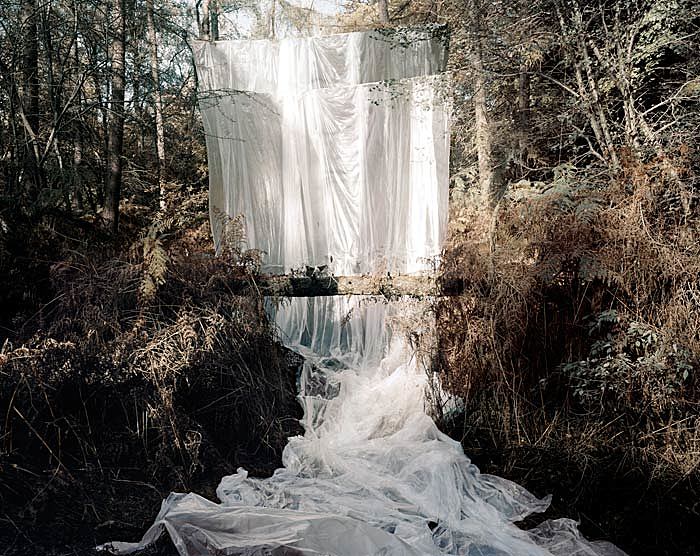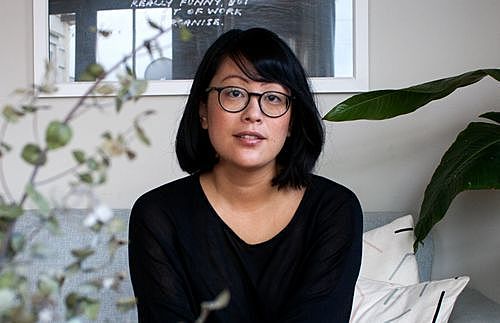National Poetry Day! Yeah, It's a Real Thing
It's National Poetry Day! To celebrate, Rosabel talks about her fraught relationship with poetry and shares some new poems by Hera Lindsay Bird.
This week, we asked one of our favourite young New Zealand poets, Hera Lindsay Bird, to share a selection of her influences and loves. It’s an exciting list for a number of reasons, and one of them is this idea of accessibility. I must have used the word five times in our initial discussion about the piece, because despite having majored in English, poetry still eludes me. There have been times in the past when people have given me poems to read, either ones they’ve written or ones they love, and this leaves me with the unfortunate task of avoiding them until they’ve forgotten they’ve done so. Not because I don’t want to hurt or offend, though this is sometimes the case, but because it’s always accompanied by this uncomfortable moment – I experience it most often in poetry, though not exclusively so – where I feel stupid and anxious that I’ve missed something. Something big. Maybe even the entire point.
Hera traces this back to the way we allow and even expect poetry to elude:
I blame high school English for a lot of our common misconceptions about poetry, particularly for inventing the idea of a poem as a kind of linguistic code you have to crack in order to get at some deeper meaning, as if poetry’s primary goal was to illuminate some facet of human experience by deliberately trying to conceal it from the reader, which is about as fundamentally moronic as inventing a satellite navigation system that intentionally diverts cars into a lake, in the hope that the experience of being in the lake will allow drivers to better reach their intended destination.
Poetry is my unwanted teen pregnancy. It happened to me before I knew any better, and although I now realise that it’s more beautiful and complex than I initially understood, I often feel like it’s not making enough of an effort to talk to me. I know I could make more of an effort, but I’m lazy.
Sometimes when my flatmate is cooking dinner, I’ll read her poetry from The New Yorker because I know she can’t escape and because I like the sound of my own voice. This is what happens after I finish reading a poem: there’ll be a short silence and then we’ll pretend it never happened. “I’ll chop the courgettes now,” is a common response from me. “Can you read that one again,” is something she never says.
Another common response is that I'll find something better to read, immediately, to drown out the memory of my transgression and restore a sense of amicability in the flat, and on more than one occasion this has led me to Hera’s work. Hera and I studied together last year, and when I finally heard her read, I was struck by how playful and intelligent and funny her writing was. It’s poetry that surprises you, in much the same way she talks about her influences surprising her, and she writes with an energy I deeply admire. To talk about Hera’s work is to refuse the same adjectives you’d use to describe the delicate patchwork quilt your grandmother crocheted when she was young, not because they don’t apply but because they wouldn’t do her justice: it’s more like riding a bike straight into the sea at two in the morning, or smashing vases against a concrete wall, but for art (you're allowed), and afterwards admiring the way each petal seems darker and more vibrant against that glittering bed of glass.
The two poems of hers that rekindled my excitement for poetry – And Together We Fight Crime and Oh, Abraham Lincoln, Kiss Me Harder - can be found in Sport 40 and definitely worth checking out. Today we're sharing three of her more recent poems:
If you are an ancient Egyptian pharaoh
I am carving dirty hieroglyphics
into the wall of your tomb.
If you are a dead rap aristocrat
I am the suspicious circumstances
surrounding your death.
If you are a shape shifting wizard
I am the shape you are shifting into.
If you are a fast moving cloud
I am an entire field of deer
looking up. If you are a sceptical cop
I am a haunted fax machine.
If you are a catapult
I am the medieval knight
you are catapulting. I fly over
the dark fields of my enemies
corkscrewing the dawn.
This is what missing you feels like.
Without you I am just
the suspicious circumstances
surrounding nothing.
Without you I am just
a regular medieval knight
going on quests and doing
other knight related stuff
like dying thousands of years ago.
I rise from the grave to lean
like a ancient wind
against your house. Your roof
a red eyelid
closed against the sky.
When I’m not with you I am like
a lonely wrestler with nobody
to break chairs on.
When I’m not with you
you feel like a shooting star
burning slowly backwards
out of me.
When you take off your clothes
the whole room darkens
to light you. Your nakedness
a pale kite
in the centre of the room.
I want to take you to the river
that runs behind my house
and show you where
the dark water vanishes
between the rocks, but I can’t
because nothing runs behind my house
not even a lonely commercial highway.
I want to stand with you on the edge
of a lonely commercial highway
waiting for the jumper cables
that will restart this engine
and take us somewhere far beyond
the confines of this poem.
All winter we lay in bed
like a pair of scientists packing snow
into a gold plated time capsule.
I need to have a reason
for the endless aisles of trees
we sailed through and your hand
on my knee in reckless disregard
for road safety recommendations.
I need to have a reason for
so many nights of watching you
recede from me, like the ass end
of a horse in the final scene
of a western. I need to have a reason
for drinking beer in your parents
swimming pool at night and how
you pretended to float
beneath the water like a body
in an intergalactic crime scene.
The stars like so many knives
in the small of your back.
Ways of making love
Like a metal detector detecting another metal detector.
Like two lonely scholars in the dark clefts of the Cyrillic alphabet.
Like an ancient star slowly getting sucked into a black hole.
So hard we break winter, leaving the conveners of the Olympics
with a serious rebranding challenge.
You are a denim tree and I’m the world’s fastest autumn.
I am the Atlantic Fortress, and you are General Sherman taking me from behind.
You stride up the cold stone steps of parliament, waving a petition to orgasm.
A lip of cloud brushes the roof of the barn.
The pale trees curve around the eye and back into the brain.
It’s like watching porn through a kaleidoscope.
or a slow wind in a kite factory.
It’s like dogs trying to do it people style, but failing
due to the inflexibility of their anatomical structure.
A cloud of bats float slowly up into your brain rafters.
You roll down my stockings, like the sun peeling ocean from a soviet globe.
I want you in the red shade of a mammoth in the Natural History Museum.
In a seventeenth century field, tilling the earth like flesh tractors.
In the airlock of a space station, my heart shaking like an epileptic star.
Between the plastic sheets of a lobotomy table
because writing poetry about having sex with someone
when you could be having sex with them instead
is the last refuge of the stupid.
It’s like getting three wishes and wishing for less wishes.
It’s like inventing a flag the exact same colour as the sky.
It’s like crying over spilled milk before it’s out of the cow.
It’s like breaking into a field at dawn with a flamethrower
and fireballing the cow so you can get your crying over and done with
and immediately begin adjusting to your new milkless existence.
But loving you isn’t really like killing cattle
no matter what poetry wants you to believe.
The day is a vault the sun has cracked open
money flying everywhere like really expensive leaves
and here I am always, begging you to come back
as if you were somehow already gone.
Poem for Lisa at the end of the world.
Coming out of the graves
are the saddest things I know. Kansas girls
with skins leaking beautiful minerals. Farmers patenting
the wind’s new technologies.
Above our house, swallows fly
towards only so many moments of air.
You stand on the porch like a woman
from a movie with the word
Buffalo in the title.
Happy National Poetry Day!
See also:
If you're in Auckland tonight, Split Fountain are presenting a collaboration between Wystan Curnow and Dino Chai
Best New Zealand Poems from 2001 - 2011
This year's National School Poetry Award winning entry, Passive Aggressive by Haro Lee
Over at The Listener, interviews with the three poetry finalists in this year's New Zealand Post Book Awards

